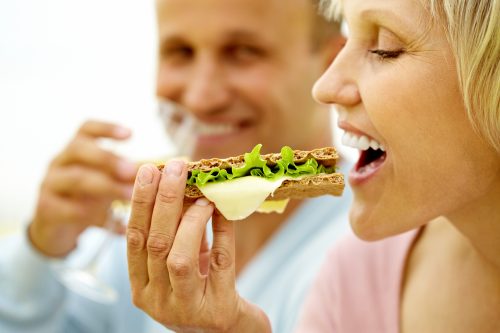
When it comes to breaking old habits by establishing new ones, there are some simple principles which will help. We explain them.
What are habits?
Our habits are the physiological and behavioural equivalent of being on auto-pilot. Without these habits, we would struggle to make it through a day, overwhelmed by tiny decisions consuming too much of our energy. Automatic thoughts and actions are often stronger than rational thoughts and actions. Logic and knowledge are no match for habit.
Habits are hard to break because they are so useful to us in everyday life. However, as much as habits make excellent slaves, they are terrible masters. When it comes to breaking old habits by establishing new ones, there are some simple principles which will help.
Habit changing strategies
1. Narrow your options
Too many choices make it hard to change behaviour. It's too hard, creates too much stress, and creates 'choice paralysis'. This is why the 'do or die' situation often yields good results for new habits.
In practice: Avoid overwhelming yourself with too many 'new' products. Make your choices at the supermarket to make it easier to make choices at home. If you don't want to eat it, don't buy it.
2. Create good constraints
Create single rules you know you can stick to. Limit your choices so every time you come in contact with the old habit, you have a new, automatic answer. It's hard to commit completely to 'never' or 'always' so tie the constraints to times or events.
In practice: Instead of saying, "I will never eat dessert again", try, "I will only eat dessert on weekends".
3. Avoid 'just this once' thinking
When establishing a new behaviour rule, insist on performing it 100% until it's fixed, or risk repeating the exception (which worked acceptably) rather than the new habit which never got a chance. If you create rules which have a legitimate 'out clause' (for example, weekends), you can more easily obey them without feeling begrudged.
In practice: On the second day of your 'replace the snack box with fruit' rule, you have a stressful afternoon. Don't reach for the biscuit jar in the kitchen instead of the fruit, just this once. By sticking to the plan, you will feel so much better.
4. Reframe to the positive
Establish new routines by replacing negatives with positives in your internal 'self talk'. Our little voices often over-use the world 'should', suggesting behaviours that ultimately evoke guilt. By replacing the word 'should' with 'can', we realise the power of our choices.
In practice: Instead of saying, "I should replace ice cream with yoghurt", say to yourself, "I can replace ice cream with yoghurt".
5. Exercise your self-regulation muscles
Self-regulation is the ability to control your thoughts, feelings and actions. It is like a muscle so it will fatigue easily if it is weak. But when exercised, the 'muscle' strengthens, and the stronger it is, the more ways you can use it.
With a good sense of self-regulation, you can assert self-control in a whole range of situations. Often the wresting back of control in one area, like eating, creates a whole new era of control in other places such as over-committing, keeping house, or being on time.
In practice: People who decide to adopt healthier eating patterns also find themselves being more committed to other things such as exercise and personal care. The opposite extreme is when people have an over-active sense of control and struggle to relax or become obsessive. As with any muscle, balance is everything.
Click here to read the inspiring stories of how some Healthy Food Guide readers changed their lives.
www.healthyfood.com










